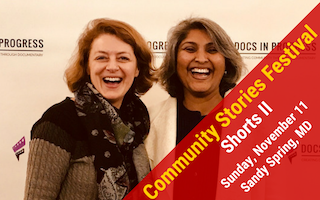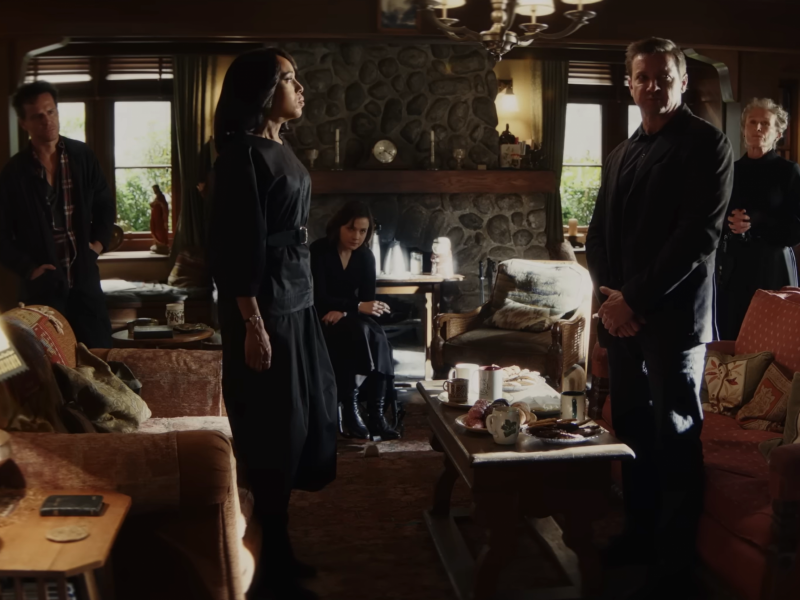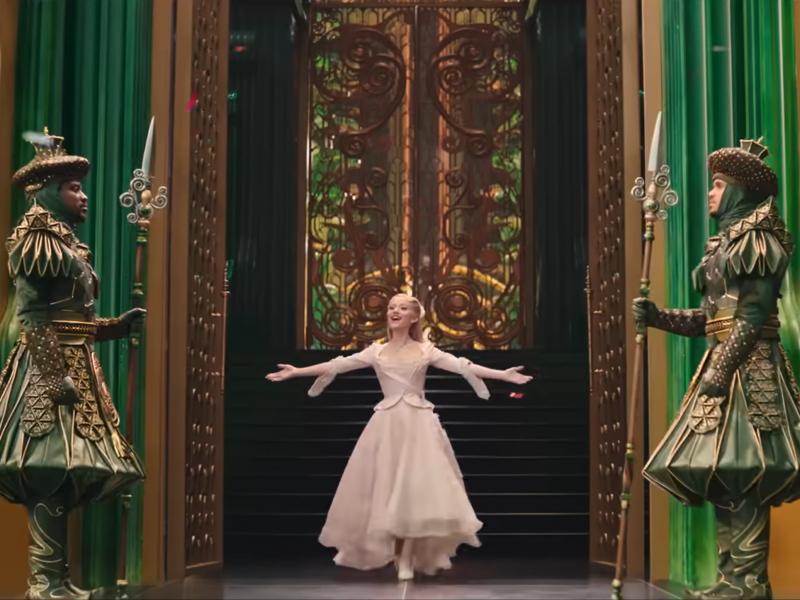The Community Stories Festival showcased documentaries from local filmmakers on Sunday night at the “Sunday Night Stories” portion of the festival at Sandy Spring Museum.
They showed nine short films, with subjects ranging from Washington D.C. car shows to Baltimore bakeries and their Italian cream puffs. Many of the filmmakers and subjects were in attendance, eager to answer questions from the small but engaged audience. During the day they may work on production crews or at schools, but in their spare time they create labors of love, applying for grants or using their own pocket money to create short films.
The night was hosted by the non-profit group Docs In Progress with executive director and co-founder Erica Ginsburg.
“The D.C. metro area has a huge number of people who are making documentaries,” Ginsburg said. “But not everyone is affiliated with a production company or a film school.”
“We help provide that space that they can meet other people, connect, get feedback on their work, get professional development and start building their careers.”
For many of the emerging documentary makers, this was the first film festival their work appeared in.
“It’s really cool,” Jennifer Lewis, a doctoral student at George Mason University and creator of festival entry Austin’s Voice, said. “I’m glad that it’s getting out there.”
Lewis’ film used one of her best students, Austin, as a subject and explored “his opinions and his thoughts of what he’d been through as a young black man in America.”
The film opened with jarring footage of the 2017 Unite the Right rally in Charlottesville, Virginia, and included footage of police beatings in the state. It centered on Austin’s experience having a double identity — that of an American and that of a black man — and how difficult it was to always be afraid of impending violence from police.
This small film festival is just a start for Lewis — she’s hoping the film will be shown at different venues where attendees will really be learning, for the first time, about how racism and police violence can affect the mental health and self-esteem of young black people.
Other films featured lighter topics, but nonetheless exposed the diversity of the Washington, D.C. area and the unique people who live here.
Get Happy With Dr. Bob, by Ketayoun Darvich-Kodjouri, Ahlan Graham and Rini Saha, gave the audience a three-minute peek into the life of Dr. Bob Sood, physician by day and stand-up comic by night.
Darvich-Kodjouri told the crowd that given their own diverse identities and family histories, the filmmakers originally wanted to focus on Dr. Sood’s story of coming to Baltimore from India at age 15 and becoming a doctor. But even though the film subject represents the great diversity of Maryland — an immigrant who became a doctor and later followed his love of performance by doing stand up comedy — the message is more universal.
“We decided all the immigrant stuff that we were interested in because of our personal narratives was not the story,” Darvich-Kodjouri said. “Meeting Dr. Bob, he’s just so joyful and so happy.”
“The story was… find your happiness, and do it, whatever it is.”
When asked how it felt seeing his double life projected in front of an audience, Sood eagerly took the mic.
“I love attention,” Sood said, drawing a laugh from the audience. “So being a class clown, I always wanted attention, so when the camera comes to me I feel very good.”
The night celebrated these amateur filmmakers and the niche stories they discovered around Baltimore and D.C. While for many of them this small festival is only the beginning, they’re able to present the local stories that live in the vast world of Baltimore and D.C. showed the abilities of novice filmmakers to record history.



